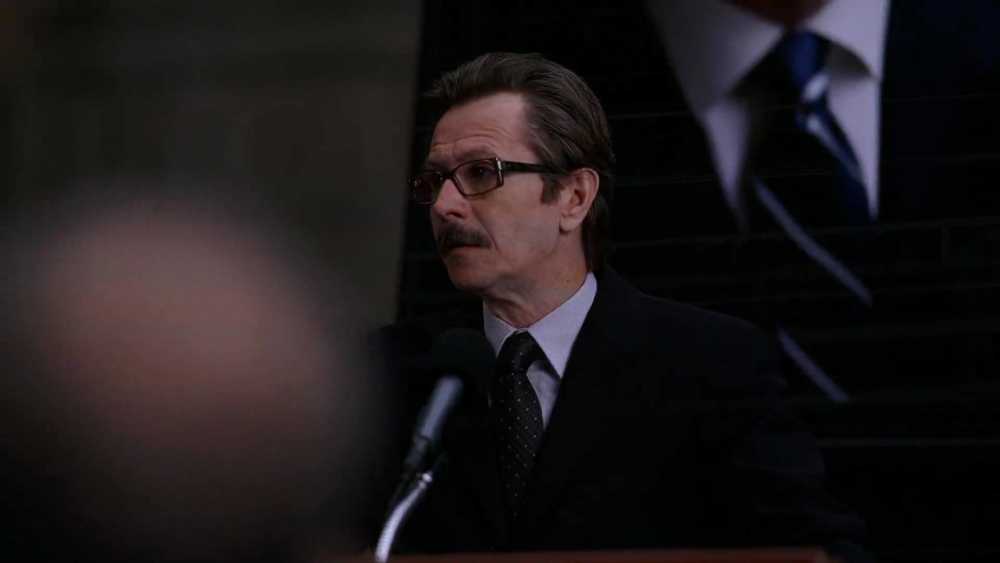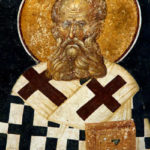We run our website the way we wished the whole internet worked: we provide high quality original content with no ads. We are funded solely by your direct support. Please consider supporting this project.

Yahweh as the Dark Knight
I recently received an interesting analogy for The Crucifixion of the Warrior God from Aaron Reini. Thank you Aaron!
In the final scene of “The Dark Knight,” Batman and Commissioner Gordon are standing over Harvey Dent, whom everyone in Gotham City looks up to as a hero, but whom the Joker had turned into a secret villain appropriately named “Two Face.” Batman and Gordon have just learned that Dent is responsible for a trail of destruction and the death of five citizens. Yet, if the citizens of Gotham discover the tragic truth about Dent’s villainous identity, it will unravel all the good work that had been done in his name and could have dire consequences for the city.
Then Batman has an idea. Watch the scene above.
Awesome, heh? Because Batman sees that the citizens of Gotham City need to believe Dent was a hero, and because he is willing to appear to be “whatever Gotham needs me to be,” Batman, who is Gotham City’s real hero, is willing to take on the appearance of the villain who carried out the atrocities that Dent brought about. In short, Batman’s love for his people leads him to appear guilty of Dent’s crimes and to thus become Gotham City’s Dark Knight.
The analogy of course isn’t perfect (analogies never are), but it captures an important aspect of my thesis in Crucifixion of the Warrior God. Like Batman, the cross reveals a God who has always been willing to appear to be whatever his fallen people need him to be. His love for his people, and his refusal to coerce people into embracing true conceptions of him, frequently led God to appear guilty of crimes that were actually committed by other human or angelic agents.
For example, when his fallen and culturally conditioned people needed to believe Yahweh demanded and enjoyed animal sacrifices, Yahweh humbly stooped to allow them to view him this way, which is why he takes on the appearance of a typical ANE sacrifice-demanding deity within the biblical narrative.
So too, when his people proved incapable of trusting a God who could accomplish his goals non-violently and needed to instead believe Yahweh was a more ferocious violent warrior god than the gods of the other nations, Yahweh humbly stooped to take on the appearance of a rather typical ANE warrior deity who commands and engages in violence. All the violence that OT authors ascribe to Yahweh was actually carried out by human or angelic agents, as their own writings usually make clear. But his ancient people weren’t yet in a place where Yahweh could free them from their assumption that attributing violence to God is the highest form of praise. And so God bears their sinful conception of him and thus takes on an appearance that reflects the ugliness of this sin.
In short, the cross is the quintessential expression of God as our dark knight. To be the loving knight who watches over us and saves us, he must, like Batman, be willing to take on appearances that are acclimated to our darkness.
Ps. If you have other good movie or literary analogies that illustrate the thesis of Crucifixion of the Warrior God, I appreciate seeing them. Please send them to editor@reknew.org. At some point down the road I’d like to compile them into a single resource for people to view.
Pss. Nanny McPhee is already taken. ;-)
Category: General
Tags: Character of God, Crucifixion of the Warrior God, Cruciform Theology
Topics: Attributes and Character
Related Reading

Rethinking Transcendence
Going back to pre-Socratic philosophers and running through the major strands of the church’s theological tradition, the conception of how God (or, in ancient Greece, “the One”) was arrived at primarily by negating the contingent features of the world that were deemed inferior and in need of explanation. God transcended the world, for example, by…

Eye for Eye: That Time Jesus Refuted An Old Testament Teaching
One of the most surprising aspects of Jesus’ teaching is that, while he clearly shared his contemporaries’ view of the Old Testament as inspired by God, he was nevertheless not afraid of repudiating it when he felt led by his Father to do so (Jn. 8:28; 12:49-50; 14:31). For example, while the OT commands people…

Does the Author of Hebrews Condone Capital Punishment? A Response to Paul Copan (#12)
In his critique of Crucifixion of the Warrior God (CWG), Paul Copan argues that several New Testament authors condone capital punishment as directly willed by God. The most challenging for my thesis, in my estimation, is Hebrews 10:26-29, which reads: For if we willfully persist in sin after having received the knowledge of the truth,…

How the Church Fathers Read the OT
After the completion of the New Testament, the church fathers developed theology in their increasingly Gentile post-apostolic church in such a way that many of the distinctively Jewish features of the NT’s use of the OT diminished. However, this was not the case with regard to the Christocentric interpretation of the OT that was so…

Cruciform Aikido Pt 2: God-Forsaken Judgment
So if Jesus is the supreme revelation of what God is like, as we explained in our last post, what does that tell us about the nature of God’s judgment?
As Jesus was dying on the cross he cried out, “Eli, Eli, lema sabachthani?,” which means, “My God, my God, why have you forsaken me?” (Mt. 27:46). This shocking cry reveals…

What Kind of God Did Jesus Reveal?
The ReKnew Manifesto exists to encourage believers and skeptics alike to re-think things they thought they already knew – hence our name, Re-Knew. I am currently working through the theology of the Manifesto in a series of posts that began a couple of months ago. Over the last few posts, we have been looking at the…
